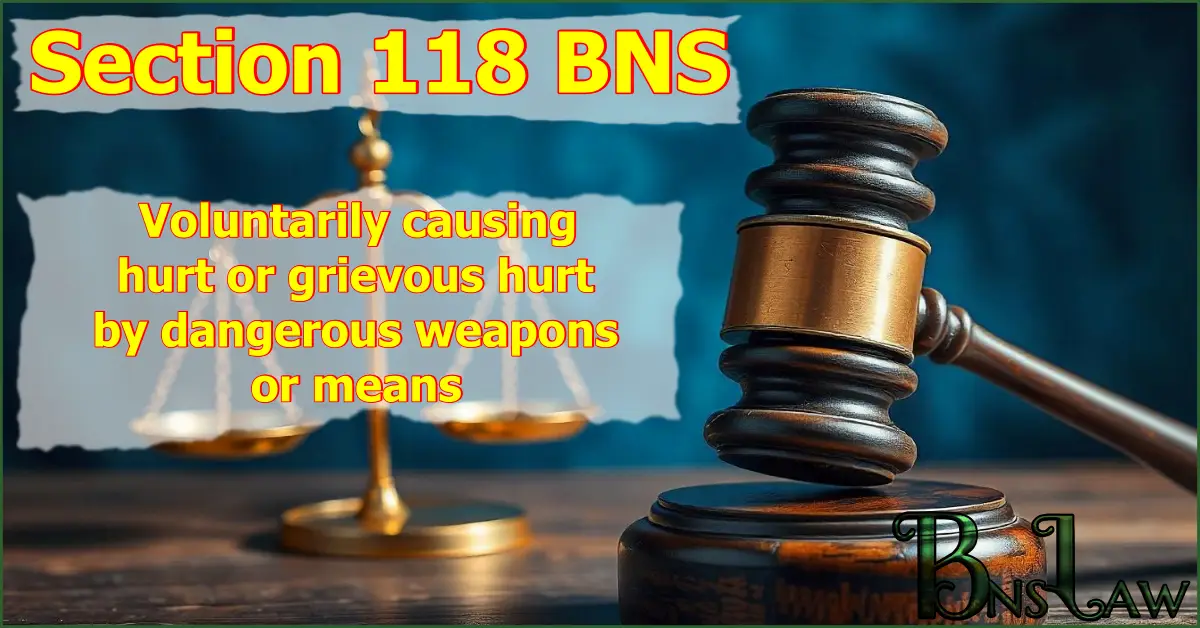Section 118 BNS | BNS 118
118(1) BNS
Whoever, except in the case provided for by sub-section (1) of section 122, voluntarily causes hurt by means of any instrument for shooting, stabbing or cutting, or any instrument which, used as a weapon of offence, is likely to cause death, or by means of fire or any heated substance, or by means of any poison or any corrosive substance,
or by means of any explosive substance, or by means of any substance which it is deleterious to the human body to inhale, to swallow, or to receive into the blood, or by means of any animal, shall be punished with imprisonment of either description for a term which may extend to three years, or with fine which may extend to twenty thousand rupees, or with both.
118(2) BNS
Whoever, except in the case provided for by sub-section (2) of section 122, voluntarily causes grievous hurt by any means referred to in sub-section (1), shall be punished with imprisonment for life, or with imprisonment of either description for a term which shall not be less than one year but which may extend to ten years, and shall also be liable to fine.
READ OTHER SECTIONS OF CHAPTER VI — OF OFFENCES AFFECTING THE HUMAN BODY
FAQs of BNS Section 118
-
118 BNS punishment and fine
Punishment and fine under Section 118 of the BNS—
118(1): Imprisonment for 3 years, or fine of 20,000 rupees, or both.
118(2): Imprisonment for life or imprisonment of not less than 1 year but which may extendm to 10 years and fine. -
118 BNS cognizable or not
The offence under Section 118(1) and 118(2) of the BNS is cognizable.
-
118 BNS bailable or not
The offence under Section 118(1) and 118(2) of the BNS is non-bailable.
-
118 BNS trial court
Offence specified in Section 118(1) of the BNS is triable by any Magistrate while the offence specified in Section 118(2) is triable by the Magistrate of the first class.
Important Points
- Cognizable Offences: These are offences where a police officer can arrest a person without a warrant.
- Non-Cognizable Offences: These are offences where a police officer cannot arrest a person without a warrant.
- Bailable Offences: These are offences where the accused can get bail from the police station itself. All bailable offences are listed in the First Schedule of the Bharatiya Nagarik Suraksha Sanhita (BNSS).
- Non-Bailable Offences: Offences in which bail is not granted directly from the police station but after hearing the case in the court, the judge decides when bail will be granted. All non-bailable offences are listed in the first schedule of the Bharatiya Nagarik Suraksha Sanhita (BNSS).
- In the above FAQ, “trial court” means the court that has jurisdiction to try the offence.
- In the above FAQ, the expression “Magistrate of the first class” and “Any Magistrate” does not include Executive Magistrates.
Read other Sections of the BNS
Reference Link: New Criminal Laws (BNS), Ministry of Home Affairs







